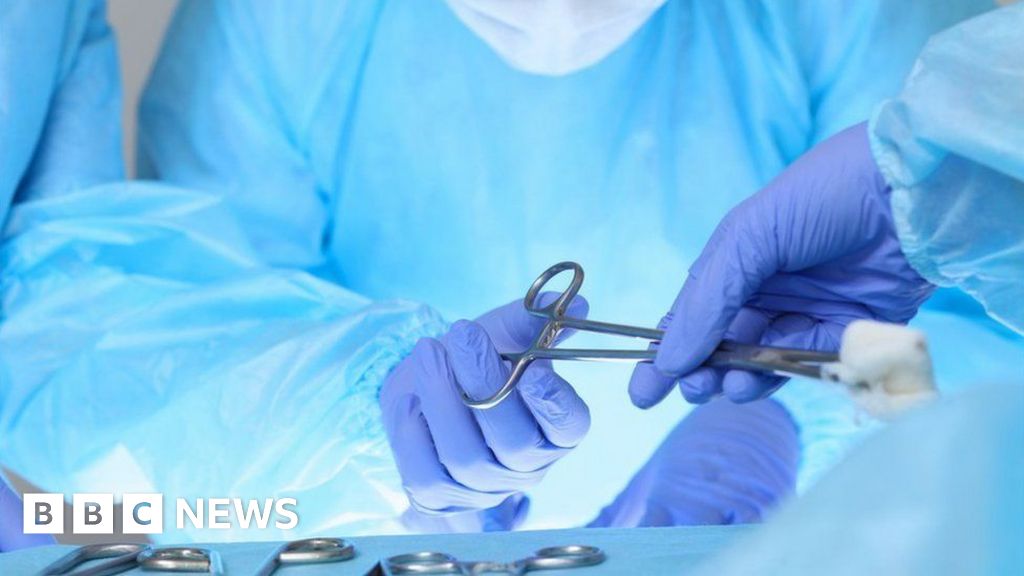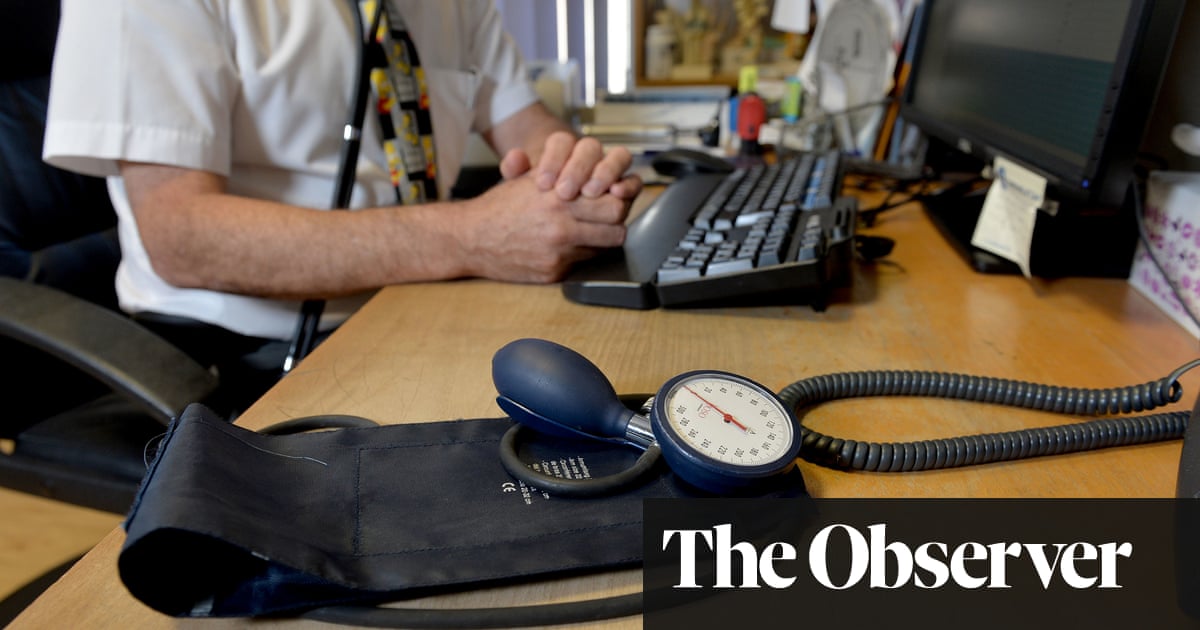Cowper’s Cut 322: Sugar tax for Streeting’s waffle

Sugar tax for Streeting

The BMJ’s Elizabeth Mahase secured an interview with everybody’s favourite Alan Milburn tribute act and shadow health secretary Wes Streeting. He gave her so much waffle that the sugar tax should have been levied. The BMJ, lest anyone forget, is principally read by doctors.
Our Wes took the opportunity to tell a grateful health policy nation that winter was quite important, and so was planning. It’s great to see his commanding grasp of the big issues.
NHS staff who feel that he’s been having a go at them are just wrong, wrong, wrong: “I want to make sure that, when they’re working during the peak of winter pressures, they feel like they’re working in an environment which is safe for patients and also working to a plan that has been agreed well in advance and not left to spiral.”
That’s a lovely ambition, but there is one problem. In the real world, NHS staff are not going to feel like this, because winter has been appalling for many, many years now. What were once deciduous ‘winter pressures’ are now perennial, and it is proportionately much worse from November to April.
Asked how he plans to tackle this coming winter if he’s in government, Streeting replied that he fears that the election may be called too late for a new health secretary to make a “real difference.”
However, should there be a summer election (which there won’t), he adds, “one of the first questions I’ll be asking the Department of Health and NHS England, if I walk through the door on day one, is where are we on winter planning? If we arrive in the middle of winter and it’s as bad as we’ve seen in previous winters, my first question will be how much can we realistically do, given that the planning hasn’t been good enough?”
This is as curious as it is disappointing. ‘What can we do if there’s no realistic plan?’ is, to be fair, a reasonable response to the grotesque mess NHS England has made of trying to run things.
But asking NHSE ‘what’s the fallback winter plan, given that your winter plans invariably suck?’ may not inspire the warm glow of reassurance that we are going to see the arrival of fresh thinking.
“We need to move on pay”
Turning to junior doctors’ demands for a 35% pay uplift, backed by the renewed strike mandate, Streeting says that while he recognises the “fundamental fairness of the argument they’re making … we need to move on pay”, he’s “not going to make promises that I can’t be 100% sure of keeping.
“We’re absolutely willing to sit down and negotiate with junior doctors on pay and wider terms and conditions. But what I’m not willing to do at this stage is set dates and deadlines.”
There is nothing new here.
Training and additional roles
The possible next Health Secretary called for “widening participation in medicine and making sure we have students drawn from every part of the country”.
He apparently believes that enabling these doctors to “train locally to where they grew up” means that they may wish to “go back and serve their own communities. I think that will help to deal with some of the black spots we see in recruitment. I think we all recognise that medicine is an elite profession but also too elitist in terms of social background. So, we have to try to deal with that.”
Sorry, what? Does he actually believe that many, and perhaps most doctors - some of the most ambitious, competitive, high-achieving people you’ll ever meet - don’t aspire to work in national centres of excellence? That their self-imposed pressure to study and work at the top-regarded and unusually top-performing trust will be trumped by the allure of the district general hospital down the road from where they were born?
If so, on what basis does he believe this?
Hope is not a plan.
Did Mr Streeting have anything to say about the longstanding but newly-publicised issue of foundation year doctors being likely to get just three weeks’ notice of where they will be working come August 2024?
Ahem: “the hole in the government’s workforce plan was around specialty training and the progression for junior doctors. And I think that’s causing some real fear and anxiety for junior doctors about what their career will look like. So, as part of our 10 year plan we’ll be working through that and looking at how we can open up more opportunities, given the shortages that we see.”
That’s pure waffle, from where I’m sitting. Got any bacon and maple syrup?
On the highly charged subject of physician associates, Streeting said, “I think they have a role to play and a contribution to make”, but politicians and NHS leaders had “a responsibility to create a culture and open up space where people can raise reasonable and legitimate concerns and be taken seriously to avoid a situation where people become angry and frustrated, where those conversations spill out in an unconstructive and unhelpful way”.
Mr Streeting didn’t quite say ‘it’s nice to be nice’, but the line clearly wasn’t far away. This interview contained very, very little that wasn’t waffle.
On those associate roles …

As for the associate roles agenda, this potent BBC News story about surgical assistants operating unsupervised at Walsall was an eye-opener.
And I know it’s unusual, but this thread on Kiss (formerly Twitter) on a doctor’s change of mind over using PAs is actually worth reading in full.
GP locum work disappearing: interesting and intentional

The Observer highlights a trend that’s been rising up on the radar for a while: the shortage of shifts being made available to GP locums. It highlights the fact that “the number of “ad hoc” locums providing temporary cover in general practice in England fell from 2,511 in March 2023 to 1,624 in March 2024, a fall of 35%”.
This is interesting, and I suspect, intentional. The ARRS scheme does not allow for its funding to be used to hire GP locums, as a fairly unsubtle hint to these people to move into salaried or even partnership roles. Locums in primary care (as in other sectors) have been able to make really good money: it seems as if the NHS has found ways to incentivise local organisations to act as customers.
There will be discomfort (and many other pieces along these lines) as the labour market adjusts to this change. Obviously, locum GPs may not like this change: locum GP agencies certainly won’t.
This will also be a fantastic opportunity for GP practices, and indeed other parts of the system that would benefit from expanded primary care, to recruit - provided they have the money.
The data day
Activity is still relatively flat: non-admitted activity in March was only 0.1% higher than in March 2019
— Stuart Hoddinott (@StuartHoddinott) May 9, 2024
For the full 2023/24 financial year, the NHS completed 17.4m elective pathways, up from 17.2m in 12 months to Feb 2020 - increase of only 1.4% pic.twitter.com/9FzRaaACYH
The latest monthly English NHS RTT data release for March 2024 gave little in the way of very good news. There was a small fall in the overall list size, but it is still 7.54 million.
To the considerable surprise of absolutely nobody, the NHS missed its eliminating 15-month waits target (just as it had done on those for 18 months and 2 years). There was progress towards it: 48,968 people had been waiting for more than 65 weeks for treatment in March (down from 75,004 the previous month).
This progress on 15 months meant that unsurprisingly, the number of people waiting more than a year rose to 309,300 in March (up from 305,050 the previous month).
Did NHS England’s end-of-year 75% four-hour A&E capital bribes work? You will be staggered to hear that they did not: 74.4% of patients were admitted, transferred or discharged from A&E departments within four hours in April (up very slightly on the 74.2% in March). This is in the context of 2.23 million attendances at A&Es across England in April, with 544,113 emergency admissions.
Category 2 ambulance average response time for April was 30 minutes and 22 seconds against the thirty-minute target for 2024/25: for category 1 ambulances, the average response time was 8 minutes and 10 seconds. Both were faster than the previous month.
There was a little bit of welcome progress on cancer: in March 2024, 77.3% of cancer patients were told they had cancer or had it definitively ruled out within 28 days, (against the target of 75%).
Less positively, 68.7% of people began their first treatment for cancer within 62 days of an urgent referral (against the target of 85%); and the backlog of patients waiting more than those 62 days at the end of March 2024 was 14,916: this is down from 19,023 for week ending 26 March 2023.
Primary care continues to shine: its work rate, as measured in providing appointments, is up by 17.5%. (In 2019, the sector gave 300 million appointments: in 2023/24, this had risen to 352.6 million.) Hurrah for primary care!
By contrast, secondary care activity remains relatively flat: non-admitted activity in March 2024 was only 0.1% higher than in March 2019. For the full 2023/24 financial year, the NHS completed 17.4 million elective pathways, up from 17.2 million in the 12 pre-pandemic months to February 2020: an increase of only 1.4%.

As ever, Rob Findlay’s HSJ analysis is helpful, as are the Institute For Government’s Stuart Hoddinott’s thoughts on Kiss (formerly Twitter).
N(IF)HP update: 2 down, 38 to go
Last week, I flagged the dambusting moment when one of the trusts in the New (If Fictional) Hospitals Programme said out loud in The Real World that its rebuild will not be completed by 2030.
HSJ brought us that news, and to the considerable surprise of absolutely nobody, another trust has rowed in: the Princess Alexandra has crossed the floor to join the ‘Reality Amnesty Party’.

Julian’s latest column skewers the lying around the New (If Fictional) Hospitals Programme perfectly.
Fictional hospitals have really taken off as one of health policy’s main games in the 2020s: just-re-elected Teeside mayor, surreptitious Tory Ben Houchen has taken the concept in an exciting new direction. Jennifer Williams of the Financial Times spotted that Houchen has boldly promised a new hospital in North Tees, despite North Tees not being in the New (If Fictional) Hospitals Programme and there being no extra money to build or run it.
The Teeside Live news story is here. It contains the wonderful line from Houchen that “actually building a new hospital doesn't seem to me to be that difficult”. Surely his secondment to run the New (If Fictional) Hospitals Programme must be at hand?
Obviously a can-do guy, Houchen continues, “There's nothing stopping us from not necessarily waiting for a hand-out from Government, albeit it would be nice if the Government funded it and obviously that's my first port of call, but actually it's something we could fund locally”.
This is the crux of it though: aim to get credit for trying, then turn it on your opponents if and when you fail pic.twitter.com/El4XIKCSjS
— Jennifer Williams (@JenWilliams_FT) May 10, 2024
What could conceivably go wrong?
(Which could ultimately work)
— Jennifer Williams (@JenWilliams_FT) May 10, 2024
Jen notes that this is “a very crude form of Mayoral lobying. Which could ultimately work.”
Well, perhaps. A lot may depend on context: in particular, on how Houchen’s questionable deal over the Teeside Freeport land is perceived to pan out in practice. It was cleared of overt illegality and corruption, but the National Audit Office is yet to investigate.
Houchen’s bullish statement that “as has been confirmed by the Government, there is going to be a spending review next year and this will set out the money available for a new hospital for our region. Whoever is in Government, I will make sure that they understand, in no uncertain terms, that we need a new hospital and Government cannot be allowed to ignore us.
"I will hold the Government to account to get the money for a new hospital and if the Labour Party are suggesting they would stop a new hospital being built for our community, were they in Government, then I will fight them tooth and nail to make sure we get what we deserve" shows enviable confidence.
But he will be operating in a different political world.
Further financial fictions
🚨 We have published our annual report into the Department of Health and Social Care's (DHSC) 2022-23 accounts
— Public Accounts Committee (@CommonsPAC) May 10, 2024
💷 @DHSCgovuk urgently needs to grip and address problems with financial management across its Departmental Group
Read the report ⬇️https://t.co/qw8JcMh6E5 pic.twitter.com/kRZj43bVXV
The Public Accounts Committee is a valued denizen of the Reality-Based Community: its new report on the Department For Health But Social Care’s 2022-23 accounts is an important read.
Neither does it piss about nor pull its punches: “Fundamental failings in the financial controls of the UK Health Security Agency, combined with backlogs in local NHS audits, are continuing to lead to unacceptable delays in producing the Department of Health and Social Care’s financial accounts, which is undermining Parliamentary accountability for taxpayers’ money.
“The Comptroller and Auditor General (C&AG) has disclaimed his audit opinion on UKHSA for the second consecutive year as a result of a lack of appropriate audit evidence. The production of unqualified accounts and strong financial controls are fundamental requirements of all public sector entities and must not be secondary to operational priorities.
“For the last four years, the Department has not published its accounts until January, ten months after the end of the financial year. The Department has committed to advancing its timetable by one month each year. However, this unambitious plan would mean it would take a decade to return to timely accountability for one of the largest areas of public spending.
“The Department is still not working effectively with the organisations within its group to enable earlier publication and needs to work with other stakeholders to ensure the audit market for NHS providers and commissioners is more resilient.
“Incidences of clinical negligence are causing harm to patients and are a burden to the public purse. In 2022–23, the Department set aside over £21 billion to cover known clinical negligence events and paid over £2.6 billion to claimants. The Department needs to urgently reduce clinical harm to ensure better patient outcomes and free up taxpayer money.
“The C&AG also qualified his opinion on NHS England’s accounts for the second time, as a result of it making £1.3 million of ineligible payments to suspended medical practitioners. It is essential that NHS England puts in place effective controls to prevent further such payments, and that it recovers the money paid in error.”
Ooops.
The data on maternity-related litigation and compensation is eye-watering: DHBSC spent £1.1 billion on maternity clinical negligence claims, which is equivalent to a third of the total maternity services budget.
Even Camilla Cavendish has realised that junior doctors are treated like shit

Tory peer Baroness Cavendish was an advisor to the Department For Health But Social Care, a CQC Board member and head of the policy unit for David Cameron’s Number 10: she even got her own Review.
If you can ignore the legion examples of bathos in her attempts to exonerate the Conservative And Unionist Party for the state of the NHS 2010-2024, her latest FT opinion piece is mildly interesting because even such a seasoned Tory partisan and peer has realised that the NHS treats junior doctors like shit.
The calibre of analysis is as follows: junior doctors “have been let down by everyone: the government, NHS England and the British Medical Association, the doctors’ union, which seems almost to want the NHS to fail”. The Baroness evidence of the “stridently ideological” BMA’s subversion of the NHS? The ongoing industrial action over pay, which has worked handsomely for consultants and has been repeatedly supported by a massive majority of BMA members across all job types.
Recommended and required reading
FT piece on the economic and other impacts of Long Covid.
Yet another coroner’s Prevention Of Future Deaths warning to the Health Secretary.
Promising-looking technology for home blood testing.
The Care Quality Commission is to be reviewed. By Penny Dash.
The Marsden and the Christie? Two big, famous cancer trusts breaking the rules? Well I never!
Steve’s latest Mythbuster column for HSJ is on avoiding hard choices.
Not fair, but legal: agency charging hospitals nearly £2,000 for a specialist nurse shift.



